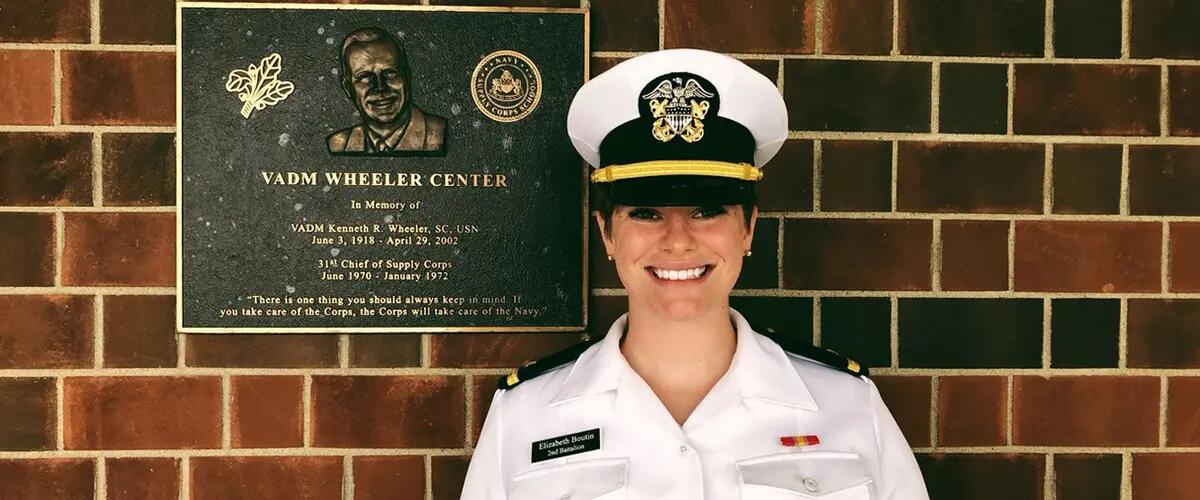
Elizabeth Boutin started a Rutgers online Masters of Science in Supply Chain Management in January.
Master in Supply Chain Management strengthens Navy officer's expertise
Five internships during college convinced Elizabeth Boutin she didn’t want a traditional job, so she joined the U.S. Navy.
“I wanted leadership experience, and the military seemed like the best option,” Ensign Boutin said.
Even as a supply corps officer, Boutin’s position is atypical: she works at the Naval Nuclear Propulsion Program in Washington, D.C. budgeting for the design, building and maintenance of nuclear reactors. Because many of her colleagues are civilians, she doesn’t wear a uniform.
What makes the job so challenging is that the projects that she’s budgeting for won’t come on line for 50 years. “It involves a lot of cost-estimating. You’re planning 50 years in advance, so you have to work backward,” Boutin explained.
To help her do her job more efficiently, Boutin enrolled in Rutgers Business School’s online Masters in Supply Chain Management.
What she’s learned since she started the program in January “has made my job a lot easier,” she said. For example, Boutin said she has reduced the turnaround time for getting information back from Congress for the engineers.
She chose the Rutgers program for its reputation and because it allowed her to design her own curriculum, she said. Boutin is interested in sustainability and is focusing on issues such as energy efficiency and human rights.
“I’ve had such a positive experience,” the 24-year-old said. She is on target to complete the program in a year while working full time for the Navy.
The online program “is super flexible for me,” Boutin said. She listens to lectures while commuting to and from work. During live lectures, she can ask questions in real-time. The professors who work in the field share information about the latest in supply chain management and are responsive to calls and emails, she said.
The quality of the supply chain management faculty is one of the reasons U.S. News & World Report recently ranked the Master of Science in Supply Chain Management No. 6 among online supply chain programs. The graduate program is bolstered by research-producing faculty members as well as instructors with years of industry experience.
When her five-year tour is over, Boutin plans to leave the Navy to open a jazz bar in or near her hometown of Northville, Michigan, a suburb of Detroit. She’ll be able to apply all she’s learned through the masters program to that endeavor too.
“I’ve learned about ordering efficiently, reducing costs and shipping times, interacting with buyers, and tracking results,” she said.
- Margaret McHugh
Press: For all media inquiries see our Media Kit


